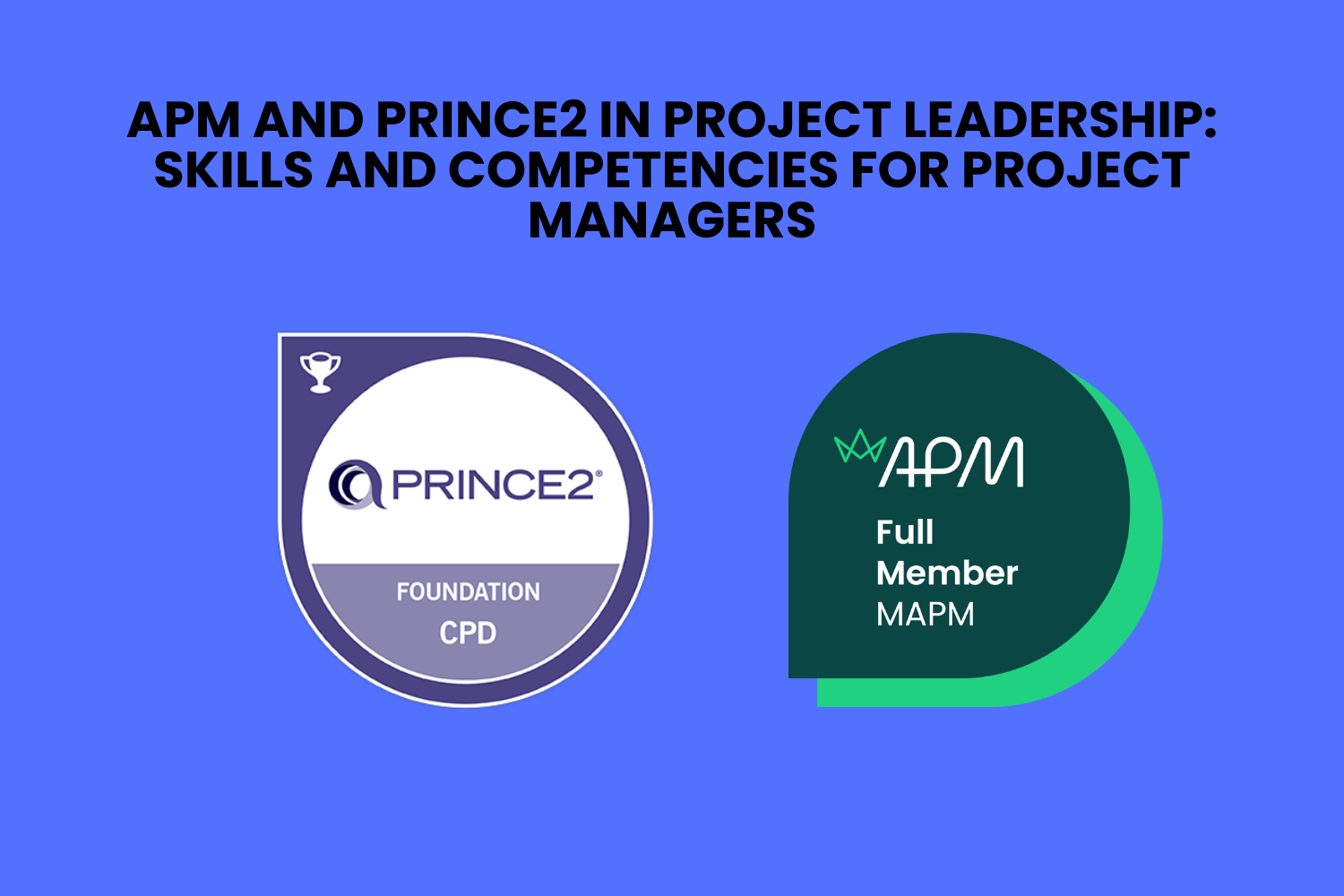Project management is a complex discipline that requires a diverse set of skills and competencies to ensure successful project delivery. Two widely recognized frameworks in the field of project management are the Association for Project Management (APM) and PRINCE2 (Projects in Controlled Environments). Both APM and PRINCE2 offer valuable guidance and best practices for project managers, each with its own focus and approach. In this blog, we’ll explore the skills and competencies emphasized by APM vs PRINCE2, the differences between the two frameworks, and the role of APM Course in developing project leadership skills.
Table of Contents
- Understanding APM and PRINCE2
- Skills and Competencies Emphasized by APM
- Skills and Competencies Emphasized by PRINCE2
- APM vs. PRINCE2: Understanding the Differences
- The Role of APM Courses in Developing Project Leadership Skills
- Conclusion
Understanding APM and PRINCE2
APM (Association for Project Management): APM is a professional organization for project management with headquarters in the UK that provides various credentials and certificates. APM strongly emphasizes fostering leadership abilities, project management competence, and the capacity to oversee projects in various sectors and industries.
PRINCE2 (Projects in Controlled Environments): PRINCE2 is a process-based method for effective project management, widely used in the UK and internationally. A systematic approach to project management is offered by PRINCE2, which focuses on planning, executing, and controlling projects in a regulated setting.
Skills and Competencies Emphasized by APM
Leadership: APM emphasizes developing leadership skills for project managers, including the ability to inspire and motivate teams, make decisions under pressure, and communicate effectively with stakeholders.
Strategic Thinking: APM encourages project managers to think strategically about project goals and objectives, considering the long-term impact of their decisions and actions.
Stakeholder Management: APM focuses on the importance of stakeholder management, teaching project managers how to identify stakeholders, understand their needs and expectations, and engage them effectively throughout the project lifecycle.
Risk Management: APM emphasizes the importance of risk management in project delivery, teaching project managers how to identify, assess, and mitigate risks to ensure project success.
Skills and Competencies Emphasized by PRINCE2
Process-Oriented Approach: A systematic, process-oriented approach to project management is offered by PRINCE2, which has phases and procedures for project initiation, planning, execution, and closing that are well defined.
Project Governance: PRINCE2 emphasizes the importance of project governance, ensuring that projects are managed effectively within defined organizational structures and reporting lines.
Product-Based Planning: PRINCE2 uses product-based planning, where the project is planned and monitored based on the deliverables or products needed.
Flexibility: PRINCE2 is designed to be adaptable and scalable, making it suitable for projects of varying sizes and complexity.
APM vs. PRINCE2: Understanding the Differences
Although they provide excellent project management assistance, APM and PRINCE2 have different approaches and focuses. While PRINCE2 offers an organized, process-oriented framework for project management with an emphasis on governance and product-based planning, APM heavily emphasizes building leadership abilities, strategic thinking, and stakeholder management.
The Role of APM Courses in Developing Project Leadership Skills
APM programs are essential for building the abilities and knowledge needed for successful project management. These courses cover various subjects, such as risk management, stakeholder management, leadership techniques, and project management concepts. Regardless of their business or sector, project managers may acquire the knowledge and practical skills required to lead projects effectively by taking APM courses.
Conclusion
APM and PRINCE2 are valuable frameworks for project managers, each offering its own skills and competencies. PRINCE2 offers an organized, process-oriented approach to project management, while APM concentrates on building leadership abilities, strategic thinking, and stakeholder management. APM courses are an excellent investment for project managers wishing to improve their skills and grow their careers since they are essential in building the knowledge and abilities needed for successful project leadership.
